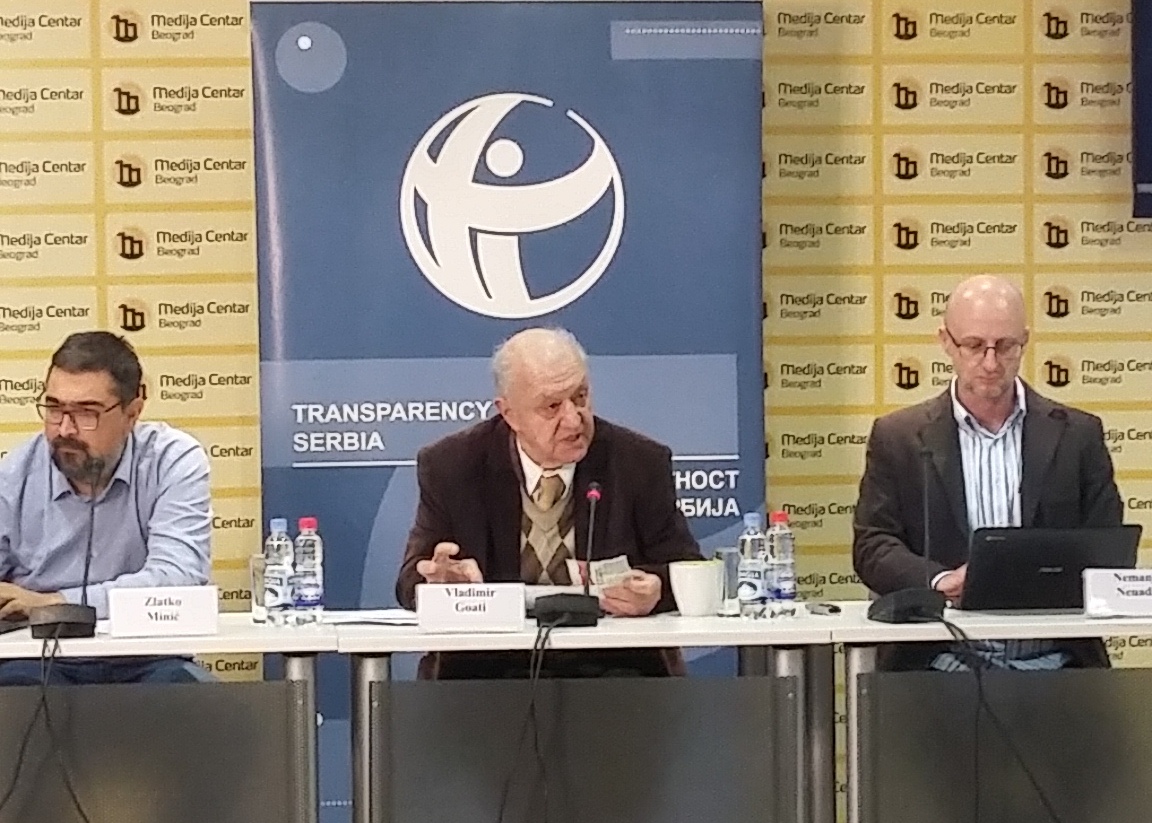Lobbying and State Capture
 In February 2018 the European Commission concluded in the Enlargement Strategy in the Western Balkans that the countries of the region show the elements of "captured states". This phenomenon has been the subject of several surveys on which Transparency Serbia worked in 2018. On Wednesday, October 31st, we presented key research findings and case study about elements of state capture in the areas of urban planning and the work of public companies. Similar research has been conducted by Transparency International over the past years in the countries of the Western Balkans, with the support of the EU.
In February 2018 the European Commission concluded in the Enlargement Strategy in the Western Balkans that the countries of the region show the elements of "captured states". This phenomenon has been the subject of several surveys on which Transparency Serbia worked in 2018. On Wednesday, October 31st, we presented key research findings and case study about elements of state capture in the areas of urban planning and the work of public companies. Similar research has been conducted by Transparency International over the past years in the countries of the Western Balkans, with the support of the EU.
In the study "Elements of the captured state", it was concluded that:
Urban city planning in Belgrade, Serbia’s capital city, is being captured by the interests of private investors – and more precisely by the interests of those that are closely linked with the ruling political elite.
Although Serbia has rules and regulations on urban planning that envisage the preparation of expert studies, public consultation and approval of plans in the city council, in reality those plans are in most significant cases adapted or even adopted in the first place with major purpose being to serve particular interests.
In the part of the research dedicated to political control in Electro Economy Serbia, it is noted that EES; as the largest public company, reflects in negative all that was not achieved by the adoption of the Law on Public Enterprises from 2012 and 2016, and these were set as goals: professionalization, accountability, transparency and efficiency of public entities:
- The operative management, and in particular the acting director, is purely politically appointed and widely considered as not qualified for the position; similarly, many of the lower level managers are considered incompetent as well.
- There is no information that the oversight board of the company, appointed by the government, has made efforts to rectify any of the identified problems.
- EPS practises party-affiliated employment that is facilitated by frequent reorganisation of the company structure, discretionary changes of systematisation act with the description of working places, and by maintaining several firms formerly connected to EPS plants in Kosovo.
- EPS’s profit is artificially increased in order to make a transfer to the budget, to present a budget surplus and to obtain political gain by linking this surplus this with the success of government policy.
- There is no comprehensive reporting and accountability for the achievement of EPS’s goals, only regarding its financial results.
- The price of EPS’s services has for decades been maintained at a lower level than in most of the neighbouring countries, in order to keep the “social peace” and to avoid political leaders seeing a decline in their popularity.
One of the ways to lighten and protect the process of enacting regulations from capture is to regulate lobbying, which is another topic we talked about at the conference. The Program Director of the TS presented the amendments which the TS sent to all parliamentary groups in the National Assembly, which could improve the text of the Law on Lobbying, which the Parliament is beginning to discuss. Download all amendments and debugging from the TS website.
Nenadić pointed out that the Draft Law sent to deputies will not solve some of the key problems. However, it is generally a good thing to adopt this law at all and to complete the anti-corruption legislation in Serbia in this way. It also has some good rules. However, the range of useful solutions is very limited.
Among the unresolved problems, there are also:
1. The law does not affect attempts to influence individual decisions, but only general legal acts; although most legislators in the world act in a similar way, there is no doubt that it would be equally important to regulate these issues;
2. The law stipulates the obligation to submit a report to the Anti-Corruption Agency on the conducted lobbying, but not the publicity of such data; there is no duty of reporting in relation to unofficial lobbying – the attempts of influencing before the official lobbying letter is made;
3. This (or any other law) does not deal with the resolution of a serious problem - that the state authorities remain unwilling to rationalize the initiatives of citizens, associations and business entities to adopt or change a regulation or arbitrary choose which of these initiatives will be taken into account.
